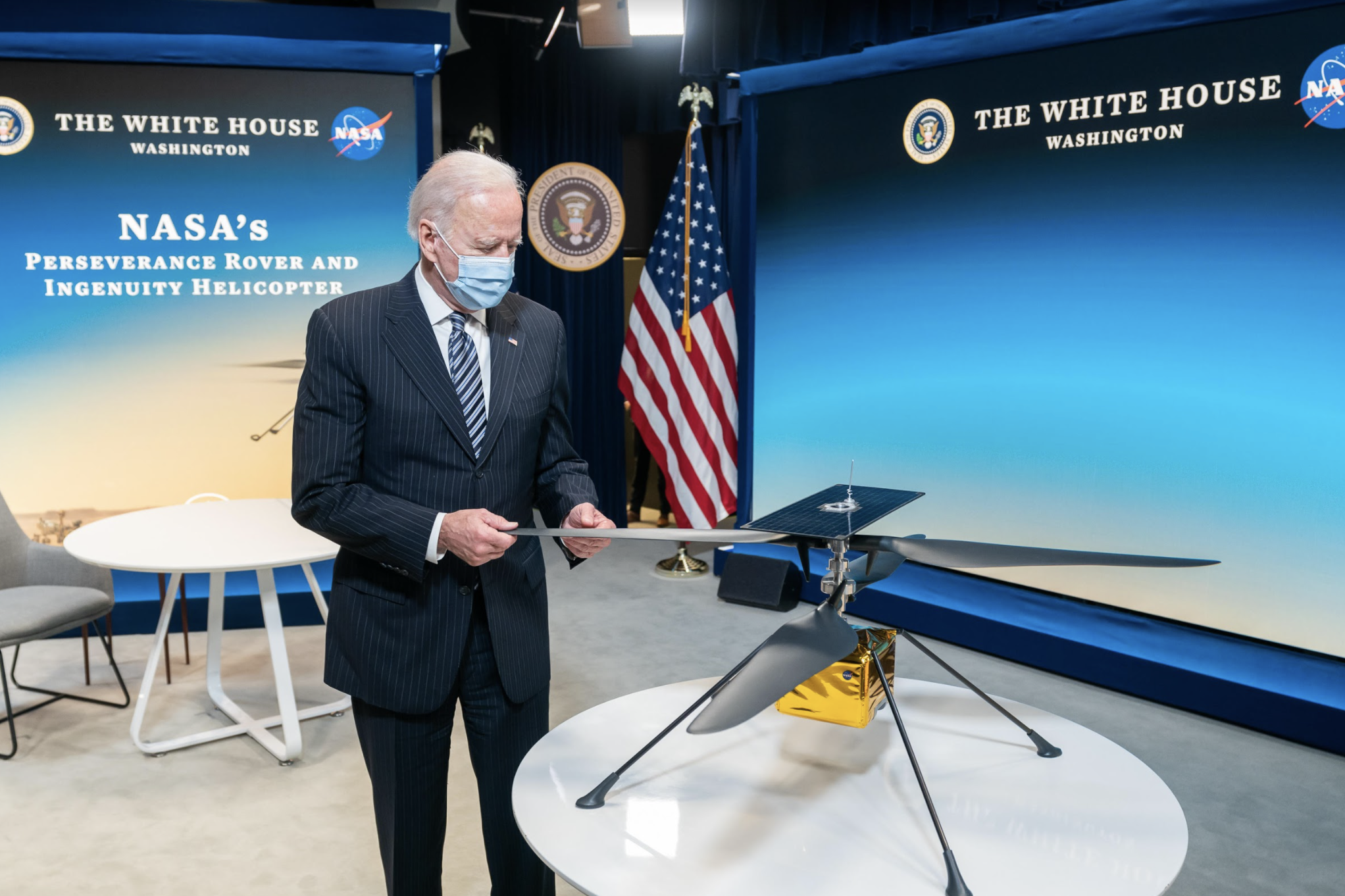Since taking office on January 21st, The Biden-Harris Administration has wasted no time in passing a flurry of legislation and executive orders attempting to make its mark to improve the country through initiatives like the American Rescue Plan (ie: the third COVID stimulus bill) and the current infrastructure legislation. What has gone a bit under the radar, however, is the administration’s renewed commitment to NASA and space exploration.
Within the first 100 days of the Biden-Harris Administration, NASA has been a key partner of President Biden in advancing his goal of “building back better” through the agency’s innovation, efforts to combat climate change, role in re-establishing America’s standing abroad, and inspiring the next generation of STEM leaders. To facilitate the continuation of this important work for his administration, President Biden has proposed a 25-billion-dollar budget for NASA for the Fiscal Year 2022 representing a 6% increase over what NASA had received in the Fiscal Year 2021.
The proposed budget enables NASA to expand human exploration missions, STEM education, and Earth Science research.
NASA Administrator Bill Nelson stated that the funding request for Fiscal Year 2022 is an “investment in America’s future” and added that NASA’s mission aligns with “the administration’s larger goals for America: addressing climate change, promoting equality, and driving economic growth.” Specifically, Nelson notes that the proposed budget will allow NASA to fund “The Earth System Observatory, consisting of an array of space-based satellites, instruments, and missions that will deliver critical data to help us understand Earth better as a system and prepare and protect our communities in the face of natural hazards.”
But it’s not just Earth Science that’s benefitting from the increased funds that are proposed to be allocated to NASA in the 2022 budget. As QC Physics Department chair Steven Schwarz notes, “The proposal recognizes the importance of NASA projects that address…solar activity, STEM education, low Earth orbit opportunities, and [other types of] space exploration. These projects, in addition to being constantly fascinating and inspiring, have both short- and long- term benefits for human welfare and economic activity.”
This massive proposed funding increase also represents a dramatic shift from the previous administration’s approach to funding space exploration. For example, the Trump-Pence Administration had proposed to implement deep budget cuts to NASA in its Fiscal Year 2019 budget. According to Forbes contributor Ethan Siegel, if this budget had passed, it would have represented a catastrophic loss for the science community, necessitating major changes to five NASA Earth Science missions, NASA’s Office of Education, and WFIRST, NASA’s flagship astrophysics mission for the 2020s. Congress, however, ended up restoring the proposed funding cuts by the administration so no changes were needed to these programs. Despite the congressional veto of those changes, NASA’s budget was still by no means lavish and the threat of big cuts getting approved by congress loomed large during the Trump-Pence administration
Looking ahead, the Biden-Harris Administration seems to have pledged a substantial commitment to NASA’s goals and missions, highlighting the importance of expanding space exploration and continuing the quest to understand our planet and the universe better and how we as humans fit into that.











